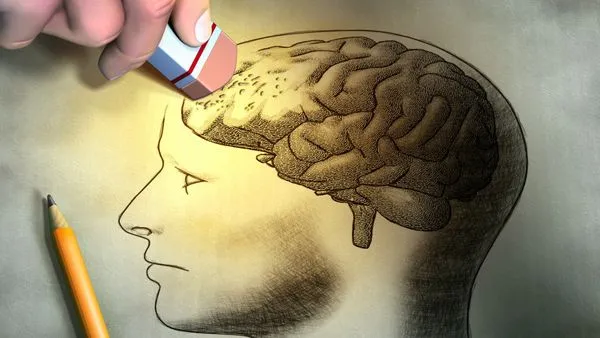Scientists have unmasked what appears to be an important mechanism that contributes to the cognitive decline related to age.
Fortunately, it is a change sensitive mechanism: the increase in blood glucose levels, which means that exercise could be the antidote.
Researchers report in the December edition of Annals of Neurology that the increase in blood sugar, a normal part of aging, affects a part of the hippocampus, a part of the brain that is critical for memory and learning.
"Which suggests that anything that improves blood sugar regulation can become a potential way to improve the decline of age -related memory," said the main author of the study Dr. Scott Small, associate professor of neurology at the neurology of the neurology of the neurology of the neurology of the neurology of the neurology of the neurology of the neurology ofTaub Institute for Research of Alzheimer's disease and brain aging of the Medical Center of Columbia University in New York City.
Findings can also help explain why people who exercise do not have so many cognitive problems as they age: exercise helps stabilize blood glucose levels.
"We had previously demonstrated that physical exercise strengthens a part of the brain involved with aging, but at that time, we did not know why physical exercise had this selective benefit," said Small."Now we have a possible mechanism. We believe that individuals who exercise have a better glucose management."
It is well known that the damage of the hippocampus is evident with Alzheimer's disease, and some have suggested that this region of the brain is also affected by normal aging.
The researchers used magnetic resonance images (IRM) to register the functioning of the hippocampus in 240 healthy people (an average age of almost 80 years).Sixty of the participants had type 2 diabetes, while 74 had suffered cerebral "infarcts", with damage to the brain's tissue.Diabetes and infarcts were related to independent areas of the hippocampus, indicating that different mechanisms act in each disorder.
The findings were confirmed in animal tests.
"The work identified an etiology [cause] for the normal decline of age -related memory," Small explained."The elevations of blood sugar levels are directed differently to the part of the teeth of the hippocampus involved in age and, as we age, we develop a slight difficulty that gradually worsens to handle blood sugar levels"
That difficulty coincides with the beginning of the loss of cognitive function, added Small.
"In my opinion, this is an interesting hypothesis that needs to be studied, since exercise helps improve cognitive functioning through that mechanism, but I think there are other mechanisms," said Bryan Freilich, clinical neuropsychologist at the Montefiore Medical Centerfrom New York City.
Mark Mapstone, an associate professor of neurology at the Medical Center of the University of Rochester in New York, said: "If these findings are replicated and confirmed, I believe that the implications could be very important, specifically, that maintaining optimal levels of blood sugar to bloodLong aging is a feasible way of slowing down or preventing cognitive decline.do something regarding cognitive aging. "
More information
For more information about healthy aging, visit the National Institute of Agingof the USA.
Article by Healthday, translated by Dr. Tango


